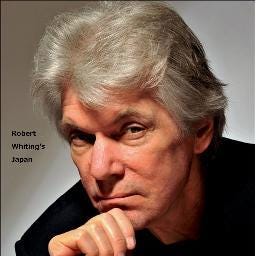Remembering Thomas Blakemore, a key figure in reforming the legal system of post-war Japan
First in a two-part series
TOKYO — It was Frances' husband Thomas Blakemore, who got the coveted KUNSHO award from the Emperor Hirohito, not Frances or Ray Bushell, both of whom had wished for that honor. But then that was because Tom Blakemore's contributions were really something special, starting with his work in the GHQ —which he always described as an effort to prevent the Americans from destroying what he viewed as the core of a perfectly good system.
Blakemore was a tall, rangy, soft-spoken graduate of the University of Oklahoma, who had originally came to Japan in 1939 to study law at the Imperial University in Tokyo under a U.S. government program: The Association of the Institute of Current World Affairs (after a stint in Berlin studying law in Nazi Germany). At Teidai, as the Imperial University was called, he was known for his superhuman effort to soak up everything he could about Japanese language and culture. There wasn't a dish he wouldn’t try, a place he wouldn't visit, an experience he didn't want to have. He would walk around with kanji flash cards in his hand, constantly memorizing new kanji characters. (He also became famous in one Ginza department store for the time he walked in attempting to ask for a pair of tweezers but mistakenly used the term "kenuki" [fart]).
By 1941, as war was about to break out, he had come to know Japan and the Japanese quite well and he come to the conclusion that the image in the Western press of the Japanese as mindless, obedient robots who were tools of the military was all wrong. Etched in his memory was one lecture he had attended that was given by a Teidai law professor, in which the professor implicitly criticized the Japanese government by describing the adoption policy of Frederick the Great as a transparent tool to get more men for his army. Even though it was expressly forbidden to say anything bad about the Japanese government or military, the message was crystal clear, because the militarists who were in control of Japan at the time needed more cannon fodder and were encouraging people to build large families. The class buzzed in astonishment at such defiance.
Keep reading with a 7-day free trial
Subscribe to Robert Whiting's Japan to keep reading this post and get 7 days of free access to the full post archives.


